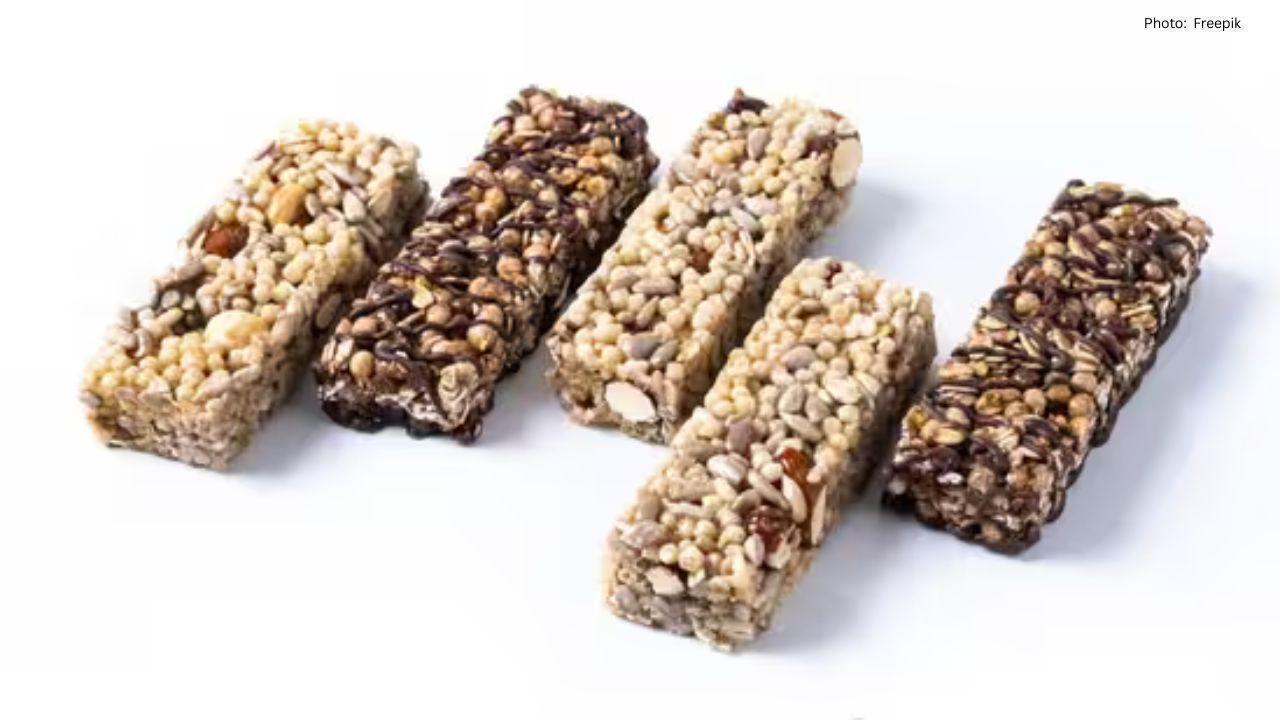
Post by : Saif Al-Najjar
Protein bars have gained popularity as a convenient snack for those seeking something quick and “nutritious.” Marketed as fitness-focused or meal substitutes, these bars might not be as beneficial as perceived. A prominent endocrinologist warns that they could adversely affect blood sugar levels and impede weight loss efforts.
Dr. Alessia Roehnelt, an endocrinologist based in New Jersey, elaborated on the necessary precautions regarding protein and granola bar selections. The principal concern she raised was the excessive hidden sugars prevalent in many such products. Even if the packaging boasts terms like “protein,” “energy,” or “healthy,” the actual ingredient list may paint a contrasting picture.
Many protein bars harbor up to 25 grams of added sugars sourced from glucose syrup, tapioca syrup, honey, and brown rice syrup. The combination of these ingredients can trigger a swift increase in blood sugar levels, followed by a rise in insulin and a subsequent crash in blood sugar. This drop often leaves individuals feeling fatigued, hungry, and craving additional food, leading to the common scenario where one consumes a protein bar yet remains unsatisfied.
Dr. Roehnelt further noted that several bars incorporate seed oils, often lurking within the ingredient list. While these oils may not pose a significant risk in small amounts, they contribute to the overall processed nature of the snack. She cautions consumers to be vigilant and not automatically trust products labeled as “healthy.” A careful examination of the packaging is essential.
Some protein bars even feature carbohydrates like brown rice as their primary ingredient, suggesting the bar resembles a sugary snack rather than a protein-rich option. When sugar takes precedence over protein, the bar can hinder weight management efforts by instigating continual blood sugar spikes and crashes throughout the day.
Dr. Roehnelt advocates for prioritizing whole foods over packaged alternatives. She emphasizes that protein bars should not substitute for actual meals. For those seeking the convenience of a bar, she suggests looking for three key attributes:
– A minimum of 10 grams of protein
– 3 to 5 grams of fiber
– Less than 5 grams of added sugars
Additionally, she recommends selecting bars with straightforward ingredients. If an ingredient name is difficult to pronounce, it may be best avoided. Complex names often indicate the presence of chemicals, additives, or artificial sweeteners.
This advisory is particularly crucial for those looking to manage weight, sustain energy levels, or regulate blood sugar. A snack perceived as healthy could potentially lead to health complications when laden with hidden sugars. Dr. Roehnelt’s guidance serves as a vital reminder that the healthiest choices are frequently the simplest. Fresh fruits, nuts, yogurt, homemade snacks, or natural protein sources typically exceed the benefits found in packaged bars.










Shubman Gill's Neck Injury Puts Participation in Second Test at Risk
Shubman Gill is recovering from a neck injury after retiring hurt; his availability for the second T

Daryl Mitchell's ODI Participation in Doubt After Injury
Daryl Mitchell's participation in the ODI series against the West Indies is unclear following a groi

Sonam Kapoor's Elegant Maximalist Residence in Mumbai
Explore Sonam Kapoor's Mumbai abode where heritage meets luxury, presenting a 2026 decor vision for

McLaren Expands Driver Development Program with Young Female Talent
McLaren initiates growth in motorsport by welcoming three young female drivers, enhancing female rep

Haaland Sparks Norway's Return to World Cup Glory
Erling Haaland's 16 goals help Norway secure a World Cup spot for the first time since 1998, leading

Curacao, Haiti, Suriname Aim for 2026 World Cup Qualification
Curacao, Haiti, and Suriname are on the brink of historic World Cup qualifications as they face cruc